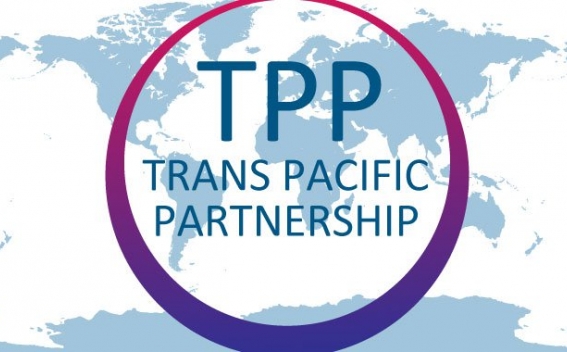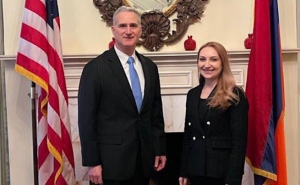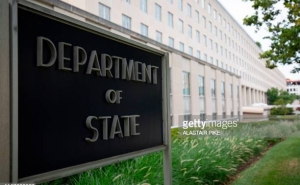What is Trans-Pacific Partnership?

12 countries in the Asia-Pacific region - the United States, Japan, Canada, Australia, New Zealand, Mexico, Peru, Chile, Malaysia, Brunei, Singapore and Vietnam – signed an agreement to establish a Trans-Pacific Partnership (TTP) in New Zealand's Auckland city, which the parliaments of the member countries must ratify within two years. It is expected that within the framework of the Trans-Pacific Partnership a free trade zone will be created. It should be noted that in this regional economic structure a 40% of global GDP is included.
The proposal to establish TPP was made in 2003 by the three countries - New Zealand, Singapore and Chile. In 2005, Brunei became a party to the negotiations, and in the same year, the four countries signed an agreement on the establishment of the TTP, which came into force in 2006. Further, over the past two years, the new organization practically did not manifest itself. Only after 2008, when this project interested the United States, which wished to participate in it, other countries of the region also expressed their desire to join the project. From 2010 to September 2013 the countries held 19 rounds of formal negotiations on the draft agreement on the TTP. On October 5, 2015 in Atlanta (USA) an agreement was reached on the Trans-Pacific Partnership.
According to many experts, this project, which was one of the main points of the agenda of the presidential administration of US head Barack Obama, will be an alternative to the APEC (Asia-Pacific Economic Cooperation). According to Washington, the latter was not a very effective structure in terms of promotion of American interests in the region. With the help of this project, Washington wants to balance the growth of Chinese influence in the region. It is not a coincidence that the PRC was not included in the unit. "When more than 95% of potential consumers of our products live outside the US, we cannot allow countries like China to determine the rules of the global economy. Those rules should be written by us, opening new markets for American goods." – BBC quotes Obama's words.
Despite the fact that the Trans-Pacific Partnership does not affect the economic interests of Russia, the strengthening of the US position in the region, obviously, cannot be desired by Moscow, but Moscow has so far refrained from estimating this regional partnership.
Other materials on this subject
- Russia, Iran are negotiating creation of common steblecoin on gold The Iranian government intends to secure this token with gold, that is, it will be a kind of steblecoin. The token is expected to work in a special economic zone in Astrakhan, which will receive cargo...
- G7 coalition has agreed to set fixed price for Russian oil The initial price itself has not been set, but should be in coming weeks, multiple sources said. Coalition partners agreed to regularly review the fixed price and revise it as needed, the source said,...
- Details of 8th package of EU sanctions against Russia became known Thus, Brussels will establish a legal basis for determining the price ceiling for Russian oil for its transportation by sea from December and oil products - from February 2023.
- White House Accuses Opec+ of Aligning with Russia The Opec+ group said it would reduce production targets by 2mn barrels a day, equivalent to 2 per cent of global supply, following its first in-person meeting in two years in Vienna. The actual cut in...
- UNCTAD Warns of Policy-Induced Global Recession According to the report, rapid interest rate increases and fiscal tightening in advanced economies combined with the cascading crises resulting from the COVID pandemic and the war in Ukraine have already...
-
 17:08
17:08The regular session of the Anti-corruption Policy Council takes place in Jermuk
-
 15:05
15:05The Prime Minister sends congratulatory messages to the supreme leader of Iran and the President of Iran
-
 11:11
11:11Armenia sends earthquake aid to Turkey
-
 10:43
10:43Commemoration of the Pontiff St. Sahak Partev
-
 09:16
09:16Some roads are closed and difficult to pass in Armenia
-
 19:55
19:55Phone conversation of the Foreign Minister of Armenia with the U.S. Assistant Secretary of State for European and Eurasian Affairs
-
 18:30
18:30Prime Minister Pashinyan and President Khachaturyan meet
-
 18:20
18:20Ararat Mirzoyan with Co-Chairman of the OSCE Minsk Group of France Brice Roquefeuil
-
 17:01
17:01Humans could land on Mars within 10 years, Musk predicts
-
 16:45
16:45France, US urge 'immediate' end to Nagorno Karabakh blockade
-
 16:01
16:01Blockaded Nagorno Karabakh launches fundraiser to support quake-hit Syria
-
 15:59
15:59Earthquake death toll in Turkey rises to 18,342
-
 15:43
15:43Ararat Mirzoyan Held a Telephone Conversation with Sergey Lavrov
-
 15:06
15:06French president rules out fighter jet supplies to Ukraine in near future
-
 14:47
14:475 Day Weather Forecast in Armenia
-
 14:44
14:44President Vahagn Khachaturyan wrote a note in the book of condolences opened in the Embassy of Syria in Armenia
-
 14:20
14:20Azerbaijan’s provocations impede establishment of peace and stability – Armenian FM tells Russian Co-Chair of OSCE MG
-
 12:57
12:57France representation to OSCE: Paris calls on Azerbaijan to restore freedom of movement through Lachin corridor
-
 11:40
11:40Command of Kosovo forces highly appreciated preparation of Armenian peacekeepers
-
 10:16
10:16The United States withdrew from sanctions against Syria for six months the provision of assistance after the earthquake
day
week
month
Humidity: %
Wind: km/h









